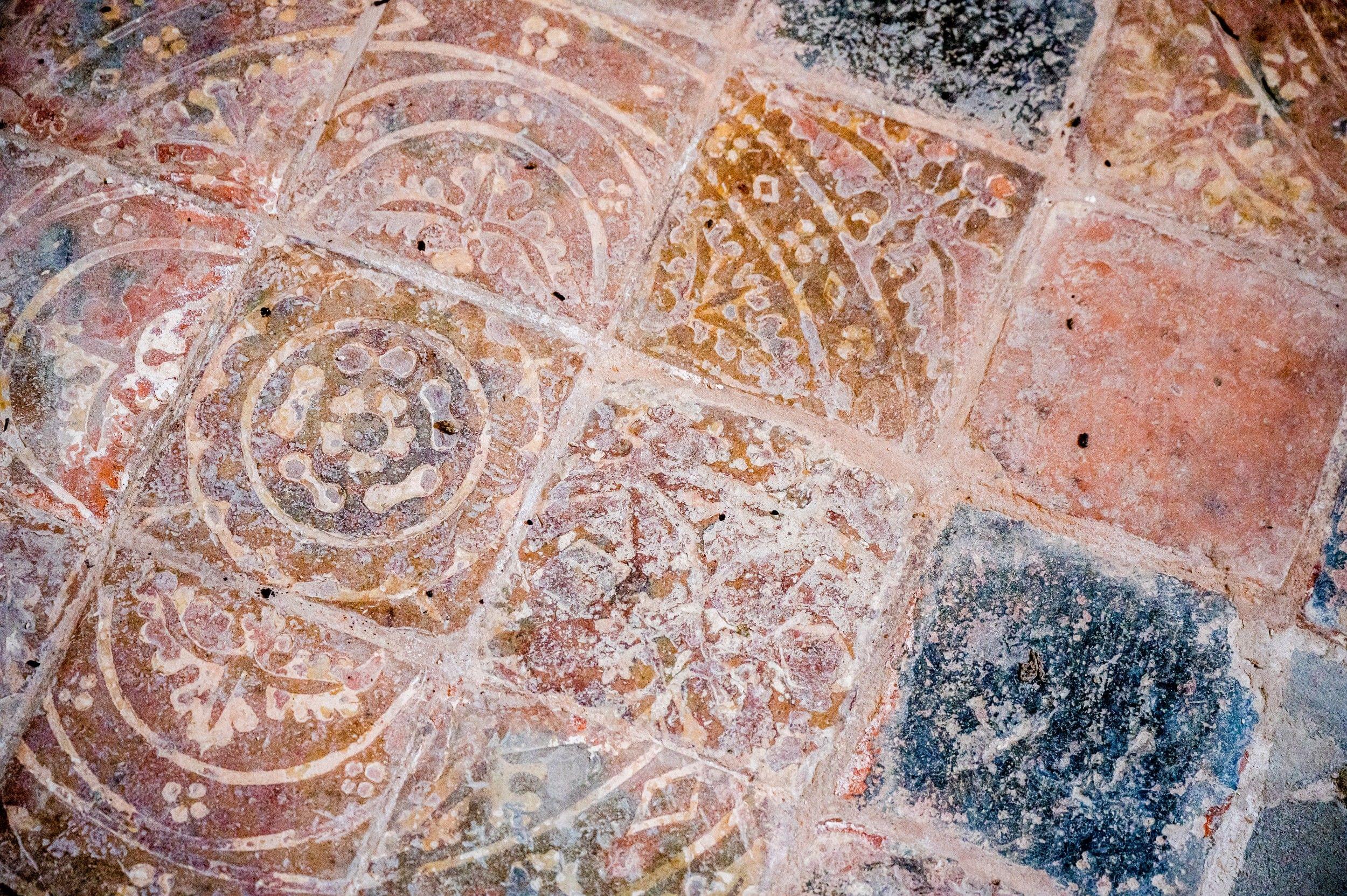St Mary
Gladestry, Powys
Ancient church and quiet garden on the Offa's Dyke Path in the Welsh border.

St Thomas a Becket church is reputed to have been erected in the early 13th century as part of the penance of one of the murderers of Becket in 1170 and possibly stands on the site of an earlier Saxon church.
Huntington, Herefordshire
After the Reformation, Becket was no longer regarded as a saint and nearly all churches consecrated to him were dedicated to other saints, but remote Huntington escaped the royal commissioner’s notice. It is one of very few English churches still to claim Thomas a Becket as patron.
The building is Grade II* listed. By 1890, it had become dilapidated and largely through the generosity of Lady Arabella Romilly of Huntington Park, it was restored with screen and remodelled chancel. With its ancient oak pews and pleasing, more modern stained glass by the much acclaimed Henry Payne, it appeals strongly to worshippers and visitors as witnessed by comments in the visitors book.
The building is in good order and the organ has recently undergone a substantial upgrade. It was originally built by the Positive Organ Company of London which produced a considerable number of small instruments. The firm was founded by Thomas Casson (1842-1910) of Denbigh, a banker turned organ builder whose ideas of organ specifications were advanced for the time. The churchyard follows a maintenance plan drawn up with Caring For God’s Acre.
Gladestry, Powys
Ancient church and quiet garden on the Offa's Dyke Path in the Welsh border.
Colva, Powys
Colva's church stand more or less alone, peeping south through its bower of yew trees high up in the Radnorshire hills.
Old Radnor, Powys
Burned during the Glyndwr risings in 1401, St Stephen's is a church with a history to rival any castle, , with a rare surviving medieval rood screen and possibly the oldest organ in the UK.